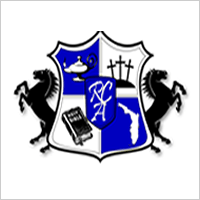Code of Ethics in Education
REPORTING EDUCATOR MISCONDUCT
Florida Statutes
1.Florida Statutes s. 1006.061 states all employees and agents of the district school board, charter schools and private schools that accept
scholarship students, have an obligation to report misconduct by an instructional personnel member or school administrator.
2.Florida Statutes s. 1012.33 outlines disciplinary procedures regarding district employment contracts with instructional personnel staff, supervisors and school principals.
3.Florida Statutes s. 1012.795 provides the Education Practices Commission the authority to issue disciplinary action against an individual’s Florida Educator certificate.
4.Florida Statutes s. 1012.796 provides authority for the Department of Education to investigate and prosecute allegations of educator misconduct.
5.Florida Statute s. 1012.01 defines public school instructional personnel, administrative personnel, school volunteers, education support employees and managers.
6.State Board of Education Rule 6B-1.001 defines the Code of Ethics of the Education Profession in Florida.
7.State Board of Education Rule 6B-1.006 defines the Principals of Professional Conduct of the Education Profession in
Florida.
HOW TO REPORT MISCONDUCT
1.Report allegations or suspicion of misconduct by an instructional personnel member to your school administrator.
2.Report allegations or suspicion of misconduct by your school administrator to School President.
3.Document the activities or details of the event.
4.Secure evidence (if applicable).
If someone tells you about misconduct, be a LEADER:
- Listen
- Evaluate
- Act immediately
- Document
- Encourage
- Report
WHO SHOULD REPORT MISCONDUCT?
1.All employees and agents of a district school board, charter school or private school have a duty to report misconduct.
2.If you are aware of or observe misconduct -- REPORT IT IMMEDIATELY!
WHO SHOULD YOU REPORT?
- Classroom teachers
2. Paraprofessionals
3. Substitute teachers
4. Librarians, guidance counselors and social workers
5. Career specialists and school psychologists
6. Principals, Assistant Principals and Deans
Failure to Report Misconduct
- Written Reprimand
2. Suspension with or without pay
3. Termination of employment
4. Discipline/Sanctions on an educator’s certificate
The following behavior may be indicative of misconduct:
1. Being alone with a student in dark or closed room or secluded area.
2. Behaving in an overly friendly or familiar way or failing to maintain an appropriate professional boundary with a student.
3. Using forceful or unnecessary physical contact with a student.
4. Administering discipline not compliant with district policy.
5. Accepting or offering of gifts for return of a favor or privilege from students or colleagues.
6. Badgering or habitually teasing a student.
7. Mocking or belittling a student.
8. Chronically embarrassing a student.
9. Displaying prejudice or bigotry against a student.
10. Suspicion of being under the influence of drugs or alcohol.
11. failing to properly supervise students or to ensure student safety.
12. Cheating, falsifying information or testing violations.
13. Retaliating against a student or colleague for reporting misconduct.
14. Bantering or engaging in colloquial or slang communications with a student.
15. Directing or using profane, offensive, or explosive language in the presence of students.
16. Making lewd or suggestive comments or overtures toward a student or colleague.
Apply the Litmus Test
- If you feel uncomfortable.
2. If you question the person’s motives or actions.
3. If you are unsure, protect the students and yourself, and report.
Employee Training
All employees of Riverland Christian Academy will have mandatory Ethics in Education training during the week of teacher in-service
before each school year begins. The training will cover everything in the above paragraphs, and specific procedures of reporting misconduct. Each employee must sign a signature page stating that they took the training and understand all the procedures. In addition, Ethics in Education
information is posted in the School Office, as well as the Staff handbook.
Liability Protection
Any person, official, or institution participating in good faith in any act authorized or required by law or reporting in good faith any instance of child abuse, abandonment, or neglect to the department or any law enforcement agency, shall be immune from any civil or criminal liability which might otherwise result by reason of such action. (F.S. 39.203)
An employer who discloses information about a former or current employee to a prospective employer of the former or current employee
upon request of the prospective employer or of the former or current employee is immune from civil liability for such disclosure or its consequences unless it is shown by clear and convincing evidence that the information disclosed by the former or current employer was knowingly false or violated any civil right of the former or current employee protected under F.S. Chapter 760. (F.S. 768.095) child abuse, abandonment, or neglect to the department or any law enforcement agency, shall be immune from any civil or criminal liability which might
otherwise result by reason of such action. (F.S. 39.203) An employer who discloses information about a former or current employee to a prospective employer of the former or current employee upon request of the prospective employer or of the former or current employee is
immune from civil liability for such disclosure or its consequences unless it is shown by clear and convincing evidence that the information disclosed by the former or current employer was knowingly false or violated any civil right of the former or current employee protected under F.S. Chapter 760. (F.S. 768.095)
Questions?
CONTACT US
Riverland Christian Academy
(352) 489-6177
rcamustangs@gmail.com or riverlandchristianacademy@gmail.com
19455 SW 61st ST
Dunnellon, FL 34432

